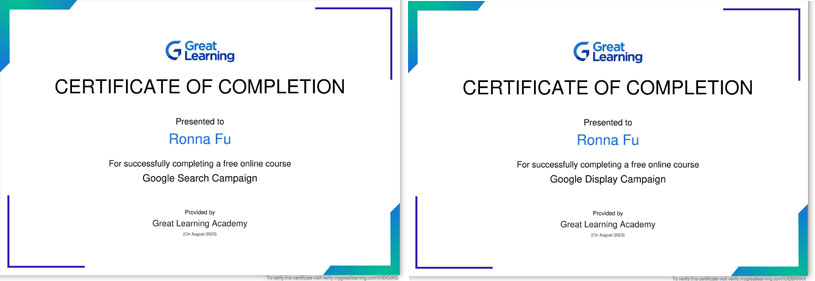

A Google Search campaign is a particular type of online marketing campaign that runs through Google Ads, formerly known as Google AdWords, Google’s platform for online marketing. When consumers conduct a Google search for a certain keyword, text advertising are intended to be displayed to them.
Google Search campaigns are an effective approach to reach people who are looking for items or services similar to yours right now. They enable you to connect with a very targeted audience and track the success of your campaign using statistics like clicks, impressions, click-through rate (CTR), and conversion rate.

Choosing keywords that are pertinent to your enterprise, goods, or services is the first step in conducting keyword research. These are the terms and phrases that customers might type into the Google search box to find products and services similar to yours.
You produce text-based advertisements that are pertinent to the selected keywords. Every advertisement normally has a headline, a few lines of information, and a display URL.
The maximum bid that you set for each term is what you’re willing to spend when someone clicks on your ad. The position of your ad on the search results page is determined by this bid together with other elements like ad relevancy and quality score.
Google’s Ad Rank algorithm determines the position of the adverts on the search results page. Your bid, ad quality, anticipated click-through rate, ad relevancy, landing page experience, and other variables are used to determine your ad rank.
Google’s algorithm chooses which advertisements to display when consumers search for a keyword you’re targeting depending on the Ad Rank. Depending on the competition and your bid, your ad may appear at the top, bottom, or side of the search results page.
The cost-per-click (CPC) bidding mechanism determines how much you are charged if a user clicks on your advertisement. The most you’re willing to spend on the campaign is your budget.
A user is taken to a landing page on your website when they click on your advertisement. The landing page should give a positive visitor experience and be pertinent to the advertisement.
You keep an eye on the campaign’s effectiveness using the reporting tools provided by Google Ads. To increase the effectiveness of the campaign, you can change bids, add new keywords, halt underperforming advertisements, and execute other optimisations.